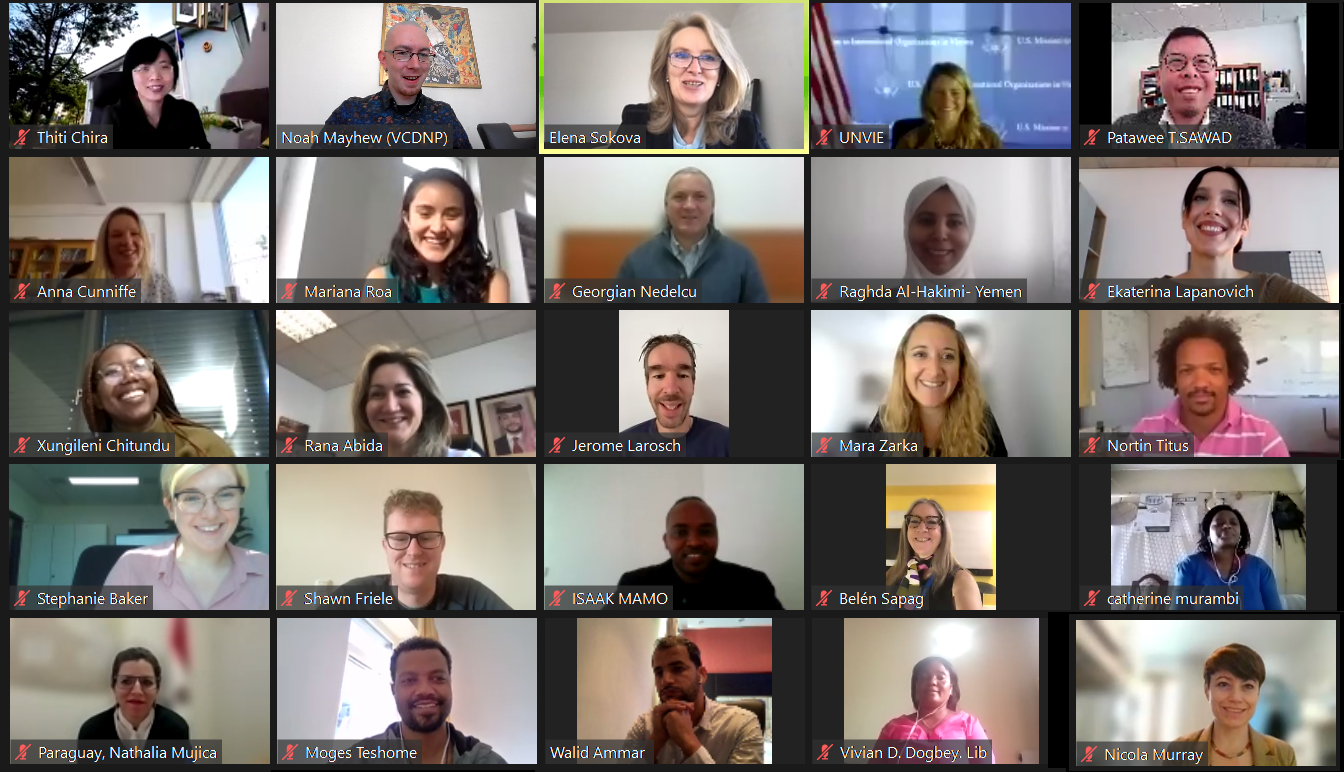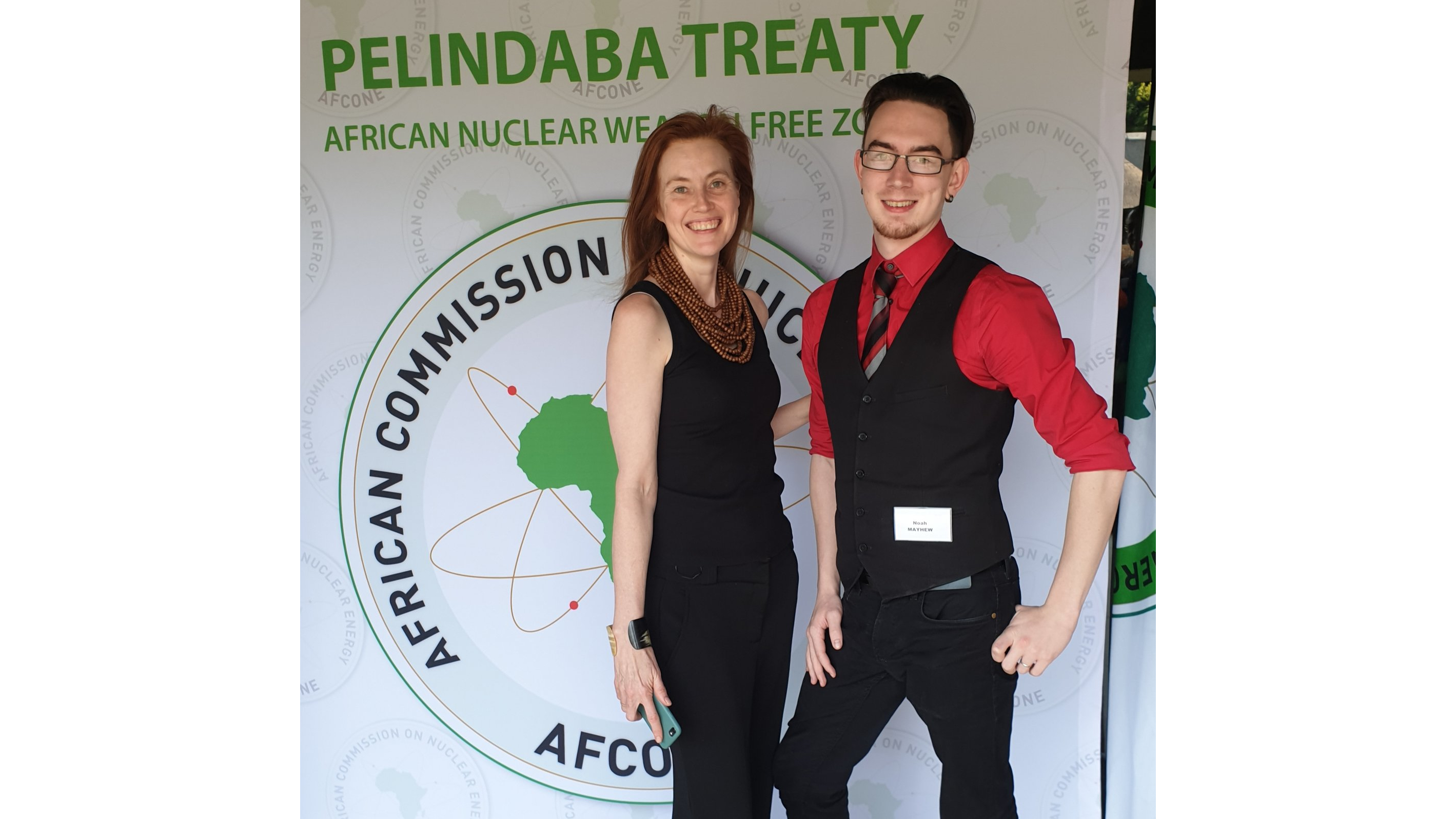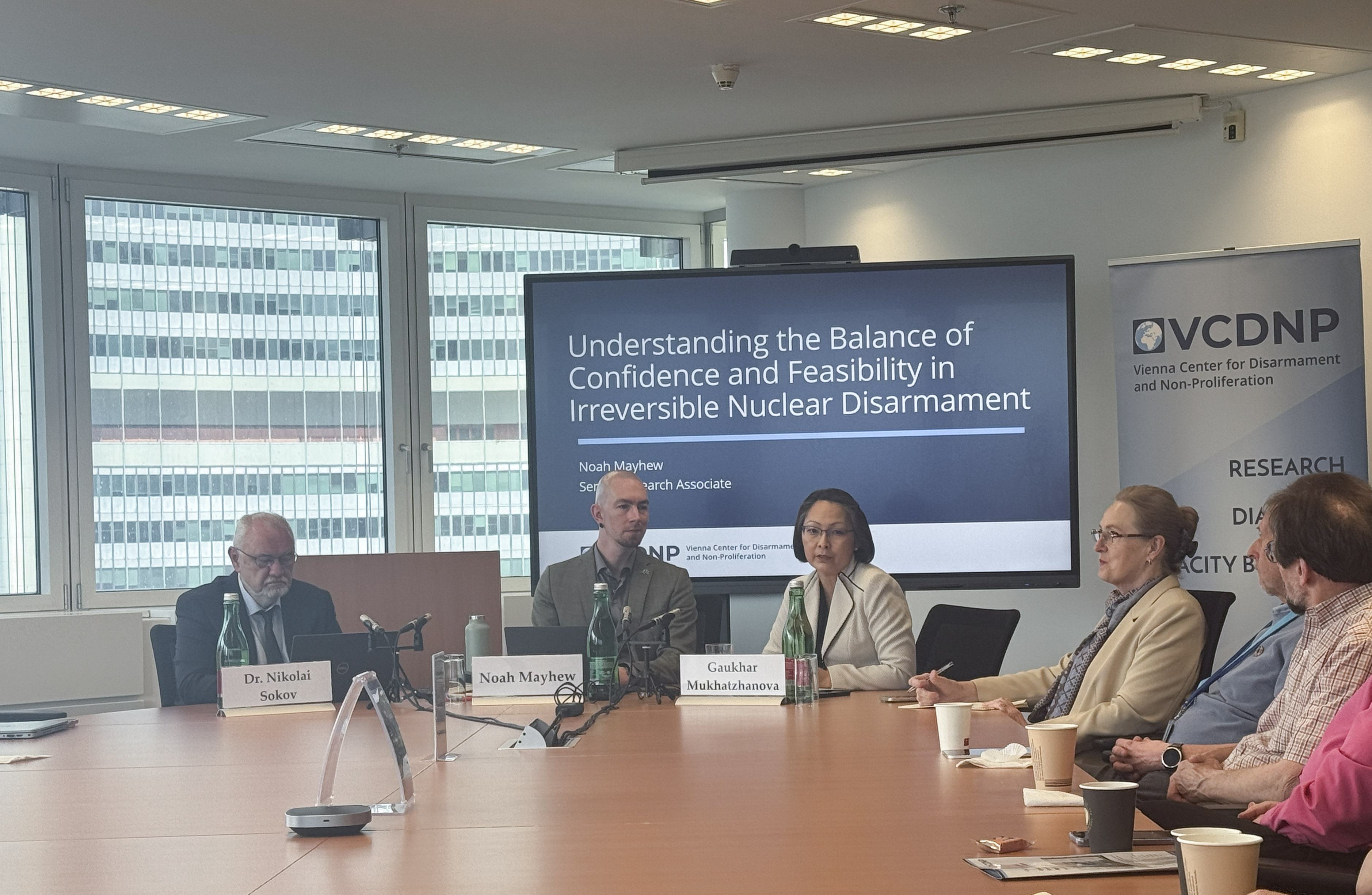
On 21 May 2025, the Vienna Center for Disarmament and Non-Proliferation (VCDNP) launched a new report, “The Balance of Confidence and Feasibility in Irreversible Nuclear Disarmament”, authored by Senior Research Associate Noah Mayhew, Senior Fellow Dr. Nikolai Sokov, and consultant Dr. Adam Bernstein. The study synthesises a comprehensive review of literature and practice on irreversibility with practical insights, driven by consultations and a not-for-attribution survey conducted with State Parties to the Treaty on the Non-Proliferation of Nuclear Weapons (NPT). Based on the analysis thereof, the final report provides actionable recommendations for the further development of the principle of irreversibility by NPT States Parties.
What are the technical and legal measures that can be implemented, what political steps can be taken and what normative momentum can be built to make steps in disarmament as irreversible as possible. How feasible are those actions to take at various steps on the path to disarmament? These were the questions that drove the VCDNP study: understanding the balance of confidence and feasibility in irreversible nuclear disarmament.
VCDNP Japan Chair for a World without Nuclear Weapons Gaukhar Mukhatzhanova opened the seminar by tracing the evolution of irreversibility as a disarmament principle. Highlighting the various priorities among NPT States Parties, she noted that the recent study seeks to reconcile technical disarmament measures with complex political and socio-economic realities, in order to provide credible assurances against the potential reconstitution of nuclear arsenals post-disarmament.
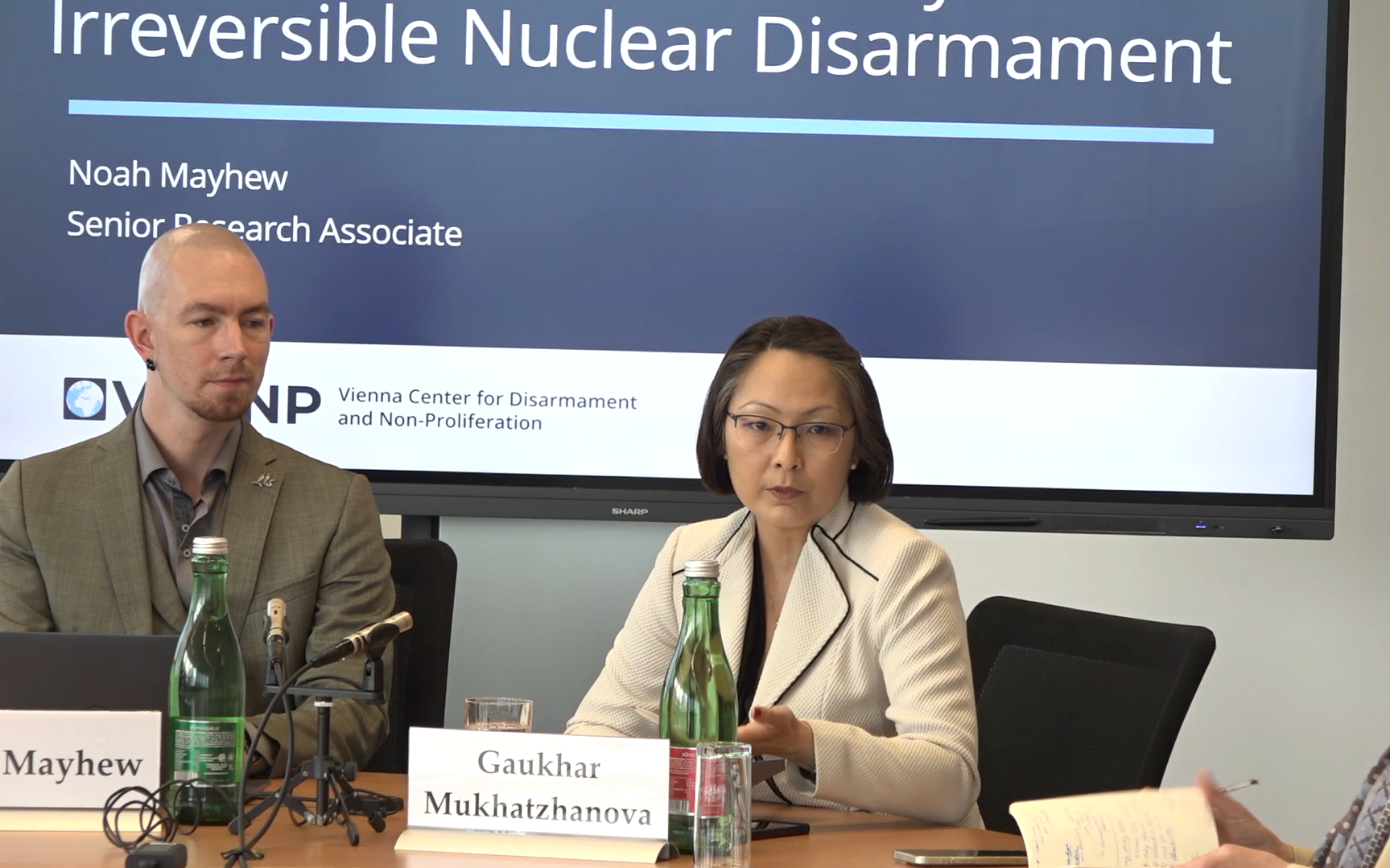
During the seminar, Mr. Mayhew delivered the main findings of the study. He asserted that irreversibility in technical terms is unattainable and should be understood as a spectrum of potential end states rather than a single, definitive outcome. He also outlined nine technical steps towards disarmament developed under the VCDNP project, with each step assessed according to the criteria of reversal difficulty and verification feasibility.
Drawing on the consultations and the survey, he shared insights from States Parties across five categories: activities in disarmament, legal and normative aspects, obstacles to disarmament, costs of disarmament and post-disarmament verification, and verification actors. During the seminar, Mr. Mayhew shared the results of five of the 29 questions posed to survey respondents, which are detailed in the report.
The recommendations from the study included, among others:
Mr. Mayhew also argued that largely theoretical debates – such as whether there is a need for a common definition of irreversibility or mapping the interrelation between irreversibility, transparency, and verifiability – have diminishing returns today. These questions, he said, would be answered at the negotiating table for a concrete agreement or treaty.
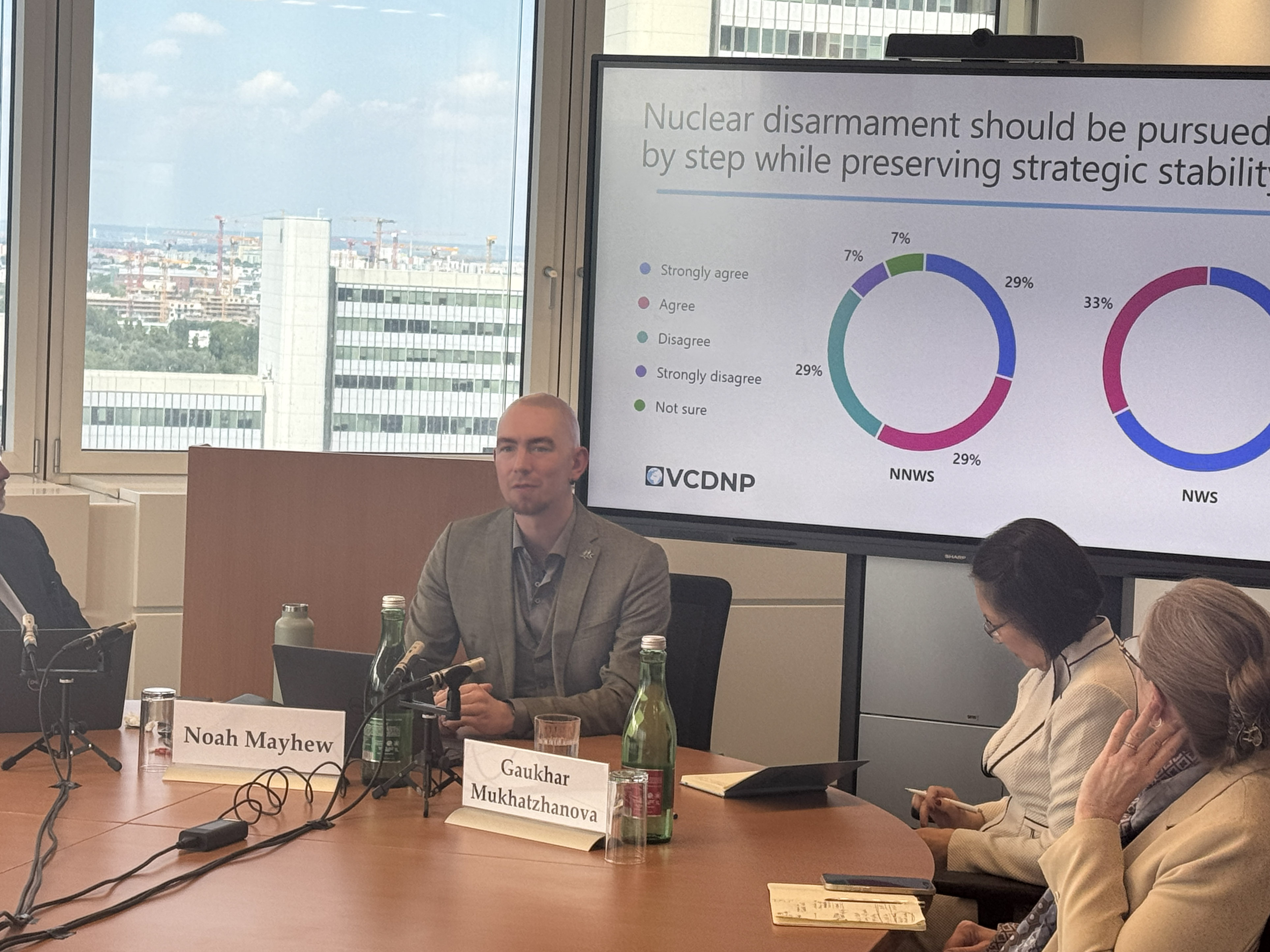
Informed by his past involvement in US-Russian arms control negotiations, Dr. Nikolai Sokov provided a grounded and experience-based view of the study. He emphasised that while the principle of irreversibility is widely supported within forums such as the NPT, identifying practical pathways forward is the logical next step for the international community.
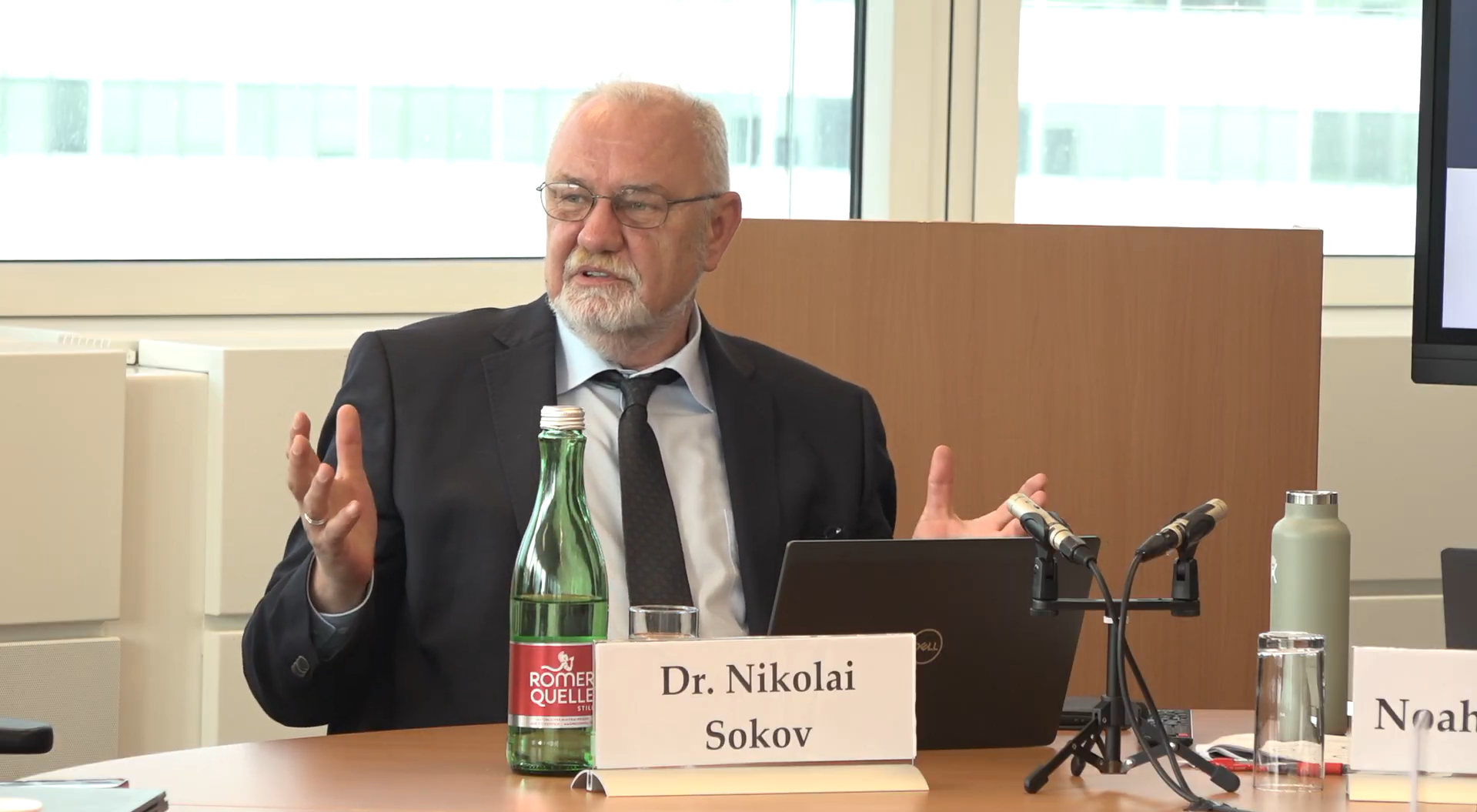
The seminar concluded that, although the principle of irreversibility in nuclear disarmament is broadly accepted, more clarity is needed on its practical, legal, and political aspects. Discussions showed that States hold differing views on how to implement the principle, share costs, and assign institutional roles. Participants emphasised the need to develop concrete policy positions for individual States and encourage inclusive dialogue. They also stressed the importance of aligning technical readiness, political commitment and institutional frameworks to ensure credible and balanced disarmament.



